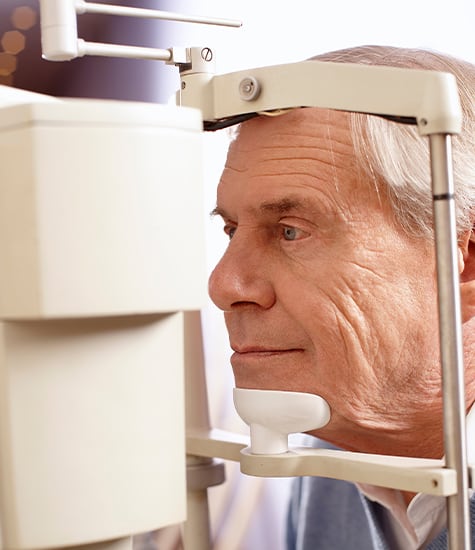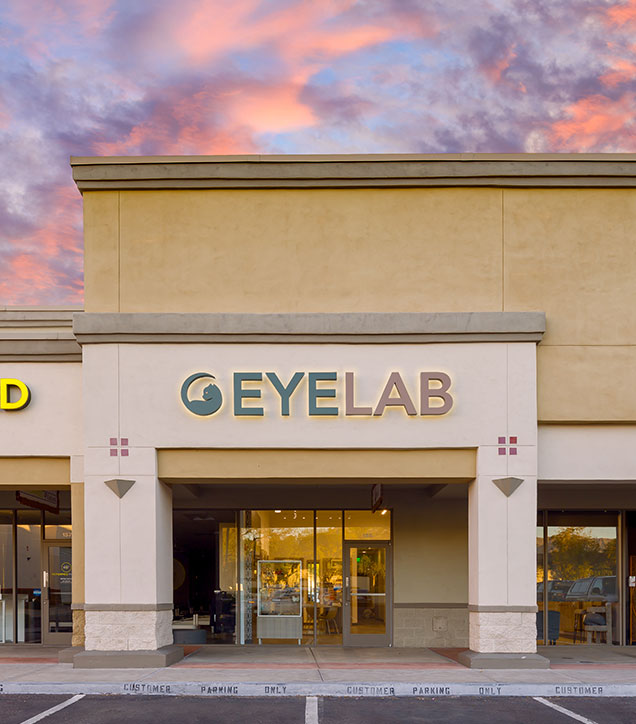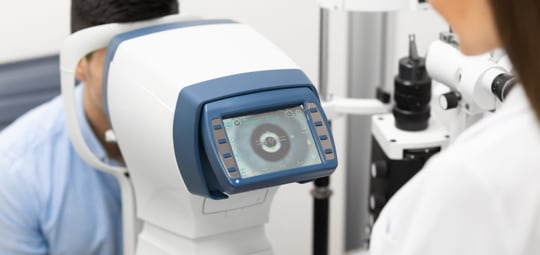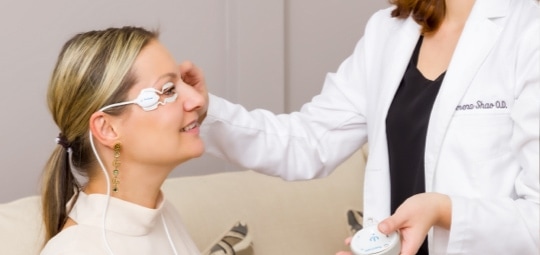




How Diabetes Can Affect Your Eyes
Diabetes affects how your body converts glucose into insulin, which prevents your body from using sugars as energy. If you have diabetes, this chronic condition can affect the blood vessels in your body and in your eyes.
Your eyes contain many small, fragile blood vessels that can take a toll if healthy blood sugar levels aren’t maintained. When this occurs, you are at an increased risk for eye diseases that could lead to vision loss if left untreated.
Diabetic eye disease often doesn’t show any signs or symptoms until it progresses.
Later stages of diabetic eye disease may present symptoms like:
- Blurred vision
- Dark spots or holes in your vision
- Flashes of light
- Increased floaters
- Decreased night vision
Diabetic Retinopathy
The blood vessels in your eyes are small and fragile and can become damaged when healthy blood sugar levels aren’t maintained. Over time, diabetes can impact the blood vessels in the retina, the part of your eye responsible for translating light into images. Diabetic retinopathy results from the small blood vessels leaking blood and other fluids, causing the retina to swell and impede vision.
Macular Edema
Diabetic retinopathy can lead to macular edema—a buildup of fluids in the retina that causes swelling to the macula (the tiny middle part of the retina responsible for clear central vision). When fluid builds up from abnormal and leaking blood vessels, our center-most vision is affected.
Glaucoma
If you have diabetes, you are at a greater risk of developing glaucoma, a group of diseases that damages your optic nerve. Most types of glaucoma are caused by increased pressure inside your eye. This added pressure stresses the optic nerve and can cause vision loss that often goes unnoticed until it affects the clarity of your sight.
Cataracts
Your eye has a crystalline lens near the outermost layer of your eye. Light comes in through this lens and focuses on the back of the eyes. A cataract forms when the lens becomes hardened, causing cloudy and hazy vision. Many people will develop cataracts as they age, but diabetes causes an increased risk of developing cataracts earlier in life. Cataracts can be corrected with increased prescriptions but may eventually require cataract surgery to replace the lens.
Ready, Set, See
Our friendly team is excited to see your children for their regularly scheduled eye exams. Let’s get them started and ensure they have the visual tools they need to succeed. Book an appointment today!

Our Location
Eye Lab proudly services those in North Scottsdale, Fountain Hills, North Phoenix, or the surrounding areas.
We’re conveniently located off East Raintree Drive and North Frank Lloyd Boulevard in Scottsdale Horizon Center. Find us on the right side of the Safeway plaza.
We have plenty of parking in the lot near our office.
We also perform eye exams in Chinese and Spanish. (我們也有說中文的服務)También tenemos a alguien que pueda traducir en español durante el examen.


Our Brands







Our Testimonials
I am 75 years old and have had issues with my eyes since birth, probably. I moved to Arizona 3 and 1/2 years ago and had to find all new doctors. On one of my first visits she diagnosed one of my conditions. It is called trichiasis. That is a condition where a person has two rows of eyelashes. They tend to curl inward irritating the eye. Now all that I need to do is have them pulled every few weeks and fairly soon they won’t even grow back.
I am so pleased to have found Dr. Serena Shao. She is opening a practice in Scottsdale and I will be driving 40 miles to be seen by her and her staff.
Dorothy L.
Every time I’ve came in for my eye visits Dr.Shao is very professional, thorough, and is always warm and sweet. I would recommend her to anyone who needs a eye visit or glasses. I give her a 10/10. I’ve been to several eye doctors and she is by far best one I’ve ever had!
Charles G.
Dr. Shao is super thorough and give good advise on my super dry eyes. I’m following her from her previous practice to her new practice



















